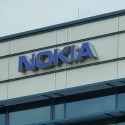Eurobites: Nokia in UK fiber push with Xantaro
Also in today's EMEA regional roundup: Vodafone expands NB-IoT network in the UK; post-flood recovery in Germany; latest on Max Schrems versus Facebook.

Also in today's EMEA regional roundup: Vodafone expands NB-IoT network in the UK; post-flood recovery in Germany; latest on Max Schrems versus Facebook.
Nokia says it is expanding its commercial relationship with UK service integrator Xantaro to bring high-speed fiber – up to 10 Gbit/s – to more than 2 million UK homes via a number of alternative service providers. To this end, the Finnish vendor will be suppling its mix-and-match technology that allows GPON, XGS-PON and 25G PON to work together in a single unit. Xantaro also has access to Nokia's IP and optical offerings as well as to devices for consumers and enterprises, delivering Wi-Fi 6 and mesh Wi-Fi coverage inside buildings. (See Eurobites: Nokia and Openreach test 25G PON broadband tech.)
Vodafone has doubled the number of its sites in its UK narrowband IoT (NB-IoT) network to help meet increasing demand for IoT services such as industrial and commercial metering, water monitoring, asset tracking, and smart-city applications. The operator claims that its NB-IoT coverage now reaches 98% of the UK in geographic terms. NB-IoT is a low-power, wide-area network (LPWAN) technology, intended to enable efficient communication across wide geographical areas.
Meanwhile, in Germany, Vodafone is donating €1 million (US$1.17 million) to an "Aktion Deutschland hilft" recovery fund to help people get back on their feet after the cataclysmic floods there last week. Half of the donation comes from Vodafone's German unit, the other half comes from the Vodafone Group Foundation. Vodafone is also battling to get the country's network fully back up and running, and says that it has already repaired more than half of all mobile basestations hit by the flood. More than 90% of its customers, the operator says, have been reconnected to its network. Part of the response has involved the deployment of "Instant Network Teams" from the Vodafone Foundation, which use mini mobile radio stations to bring network coverage to places that have completely lost it.
Deutsche Telekom is also involved in a massive post-flood recovery operation. Around 130 sites in the crisis regions of North Rhine-Westphalia and Rhineland-Palatinate were down in the operator's mobile communications network as a result of the storms; now, more than half are back on line. On the fixed network side of things, things are a little more complicated: The masses of water and debris have caused major damage to fiber-optic and copper cables in large parts of affected regions, and there are many places where a completely new infrastructure will have to be built. Figure 1:
 Flood carnage: The storms in Germany caused millions of euros' worth of damage, not least to communications networks.
Flood carnage: The storms in Germany caused millions of euros' worth of damage, not least to communications networks.
(Source: Deutsche Telekom)The Austrian Supreme Court has decided to accede to the requests made by long-time data privacy activist Max Schrems and refer key questions about the legal basis on which Facebook collects the data of EU citizens to the EU's Court of Justice. As Reuters reports (paywall applies), Schrems asserts that the social media giant deprives users of the protections they are supposed to enjoy under the tenets of the EU's General Data Protection Regulation (GDPR). The court also awarded Schrems symbolic damages of €500 ($589) for his troubles. (See Is Facebook facing the end of EU-US data transfers? and Eurobites: Privacy Champion Slams Web Giants Over GDPR Tactics.)
— Paul Rainford, Assistant Editor, Europe, Light Reading
Read more about:
EuropeAbout the Author(s)
You May Also Like




_International_Software_Products.jpeg?width=300&auto=webp&quality=80&disable=upscale)






